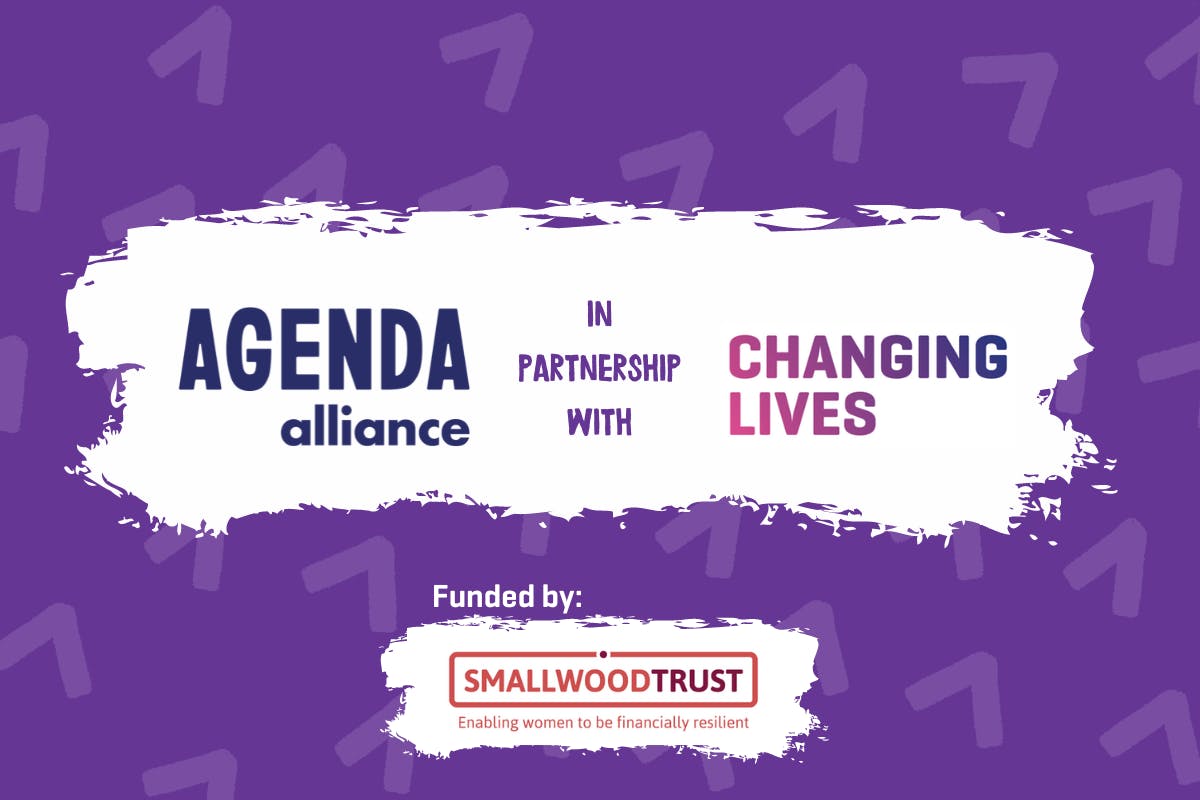A guest blog by Cynthia Otote, Communications Officer at Agenda
Our Transforming Services project, in partnership with Agenda, seeks to explore the ways in which public services can be redesigned post-pandemic to better meet the needs of women with multiple unmet needs.
As part of this project, Agenda and Changing Lives will be holding regular Community of Practice group meetings. Comprised of local practitioners and women with lived experience, the group will discuss the impact of the pandemic on both services, and women accessing support from services, in Tyne and Wear and Northumberland.
On 9th September, our Community of Practice group met to discuss relationships, identifying how relationships were impacted by COVID and what can be learnt moving forward.
Impact on relationships during the pandemic
One significant challenge felt during the pandemic was its impact on staff recruitment and retention. In the NHS and social care sector in particular, there were struggles both to recruit staff and to retain existing staff – a major hindrance to the continuity of care crucial for maintaining relationships with people accessing services.
Sharing her insights, one of the women researchers with lived experience of multiple unmet needs spoke about being assigned social workers who were set to be moved to another department within a few months and her reluctance to open up to them, knowing she would later have to share her experience again: “You put all your effort into getting to know this person […] and then you get someone else and have to go through the whole trauma again.”
Another challenge was the need for remote service delivery. One of the practitioners highlighted the difficulties of interacting with service users over the telephone and trying to build a relationship when there were no non-verbal cues to pick up on.
However, this period also showed the importance of adapting, with services taking meetings online to continue. Indeed, one of the women researchers raised that, for her, consistency was more important than meeting face to face.
Good relationships make a crucial difference
During the meeting, practitioners explained that they aim to create relationships built on respect and trust. It was acknowledged that for women with multiple unmet needs, a good relationship may not yet have existed in their lives. This emphasises the importance of good quality relationships – while good relationships can be empowering and, indeed, the key to accessing support, bad relationships with services can be retraumatising.
When asked to provide an example of good relationship with services, one of the women researchers said, “One of the things that made a big difference was that I got a worker who really made the effort to meet me where I was at. She asked, ‘What can I do for you today?’ ‘What’s going to make you feel better today?’”
The women we spoke to explained that a good relationship with a practitioner can look like: “Somebody sympathetic who can sit and listen to you and not judge you.”
As well as: “Someone who is educated in what you’ve been through. A lot of people judge people because they’ve never been educated.”
One of the women also noted the importance of practitioners having their own wellbeing cared for and being offered support while they manage heavy workloads, asking, “Who’s looking after them so they can look after us?”
A way forward
While the pandemic created several new challenges for relationships between services and service users, such as the difficulty of remote service delivery, it also exacerbated existing issues, including staff turnover. By shining a light on these issues, the pandemic has given us an opportunity to rethink service delivery for the benefit of women accessing support.
When asked what we can learn from COVID moving forward, one of the women said it was important to maintain a blend of options for service delivery: “A lot of people who went into lockdown struggled to get out of the house after lockdown, so keeping those options open so they can feel more comfortable staying at home.”
Again, the women stressed the importance of relationships with workers being consistent, and not having to constantly retell some of the most challenging experiences of their lives.
“I had so many different workers,” one explained, “and you’re retelling your story, you’re retraumatising yourself every single time you do that and then it detaches you from that experience because you’re repeating it so often that it’s just a story, it’s not your life anymore.”
Finally, practitioners touched on how relationships across agencies can be improved, for example through communicating information more regularly. Indeed, the perfect solution to better relationships was agreed to be communication.
“Keep talking,” one practitioner said. Another: “Honest, open communication.”
The Community of Practice group will meet over the course of the project, and we will continue to share insights from these meetings.
The Transforming Services for Women’s Futures project is funded by the Smallwood Trust. Learn more about the project here.



